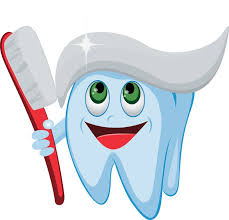Cavities are one of the most common chronic health problems of children in the United States. Children who have poor dental health often miss more school than children who do not. Additionally, poor oral health leads to various other problems.
Your child’s chance of getting cavities can be higher if:
- Family members (older siblings or parents) have cavities.
- They have a lot of sugary food and drinks.
- They have special health care needs.
- They wear braces, orthodontic or oral appliances.
Children living in communities with fluoridated tap water have fewer cavities than children whose water does not contain fluoride. Similarly, children who brush daily with fluoride toothpaste will have fewer cavities.
Help your children learn good oral health habits so that they:
- Can speak clearly
- Can eat healthy foods
- Feel good about themselves
- Experience healthy growth and development
- Focus and learn
- Have a pain-free mouth
- Have lower dental care costs
How to help your child:
- Brush their teeth with fluoride toothpaste twice a day.
- If your child is younger than 3-years-old, brush with a smear of fluoride toothpaste.
- If your child is age 3- to 6-years-old, brush with a pea size amount of fluoride toothpaste.
- Young children will want to brush their own teeth, but they need help. Brush their teeth or help them brush their teeth until they are about 7- or 8-years-old.
- Be a good role model! Brush your teeth with fluoride toothpaste twice a day and floss once a day.
- Serve healthy meals and snacks like fruits, vegetables, low-fat milk and milk products, whole-grain products, meat, fish, chicken, eggs and beans.
- Do not give your child food for rewards.
- Take your child to the dentist for a checkup by their first birthday and continue to go regularly.
- Talk to your dentist or doctor about putting fluoride varnish on your child’s teeth as soon as the first tooth appears.
- For children under 2-years-old, consult first with your doctor or dentist regarding the use of fluoride toothpaste.
- Drink tap water that contains fluoride.
To see if your community’s water is fluoridated, call your water utility company and request a copy of the utility’s most recent “Consumer Confidence Report.” If your drinking water does not have enough fluoride to prevent cavities, ask your dentist, pediatrician, family doctor or nurse if your child needs oral fluoride supplements, such as drops, tablets or lozenges.
Sources: www.cdc.gov; www.ada.org


